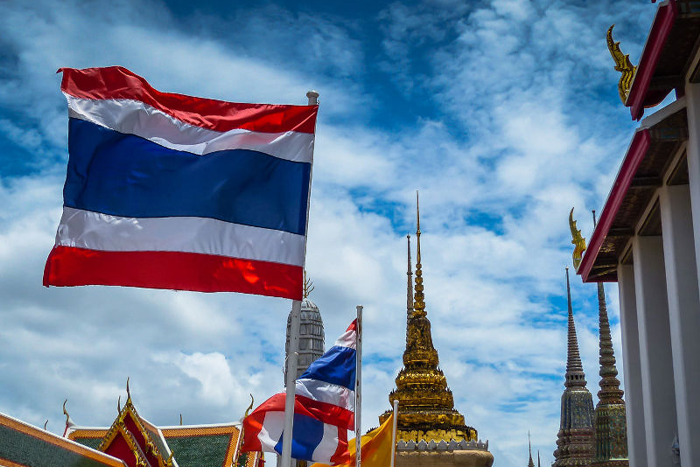July 2018 |
To our SIIA corporate members and friends:
Given Indonesia’s proximity and economic size, many of you have asked us about the recent regional elections, and the outlook for the presidential elections in 2019. We are writing to share our views on the matter with you briefly.
In sum, the regional elections differ from the general and presidential elections in terms of coalitions and dynamics. Yet, their outcome offers certain lessons. Chief amongst these is that President Joko Widodo (“Jokowi”) will have to realign his ruling coalition in view of the relative popularity of the political parties. He will also have to deal with economic issues as much as with Islam and identity politics.
1. Popularity of the Political Parties and Jokowi: Following the 2014 general elections, the Indonesian Party of Struggle (PDI-P) and Gerindra have been the biggest ruling and opposition parties. Both, however, performed poorly in the 2018 regional elections. PDI-P won only six of the 17 governorships they contested. Gerindra won four. In contrast, some smaller parties did well. The National Democratic party (Nasdem), part of the ruling coalition, won eleven governorships. So did other candidates affiliated with Jokowi, who won in four of the five battleground states (North Sumatra, South Sulawesi and West, Central and East Java) where nearly half of Indonesia’s population lives. Jokowi showed skill in selecting and backing candidates and has demontrated his popularity; but whether these victories will translate into support for his re-election bid in 2019 remains to be seen.
2. Identity Politics: There was a sharp spike in Islamic identity politics in the 2017 Jakarta gubernatorial election that shocked many. Some continued to campaign in the regional elections on this basis with “black campaigns” to brand some candidates as non-believers. This was not always an effective political tool; despite a campaign by the Islamic Defenders Front (FPI) in West Java, the Jokowi-backed candidate Ridwan Kamil won handily. Islamic identity-based campaigns do not seem so pivotal where both candidates are Muslim, as compared to the situation with Former-Jakarta Governor Basuki Purnama “Ahok” – a Christian Chinese. We note in this context that President Jokowi has taken steps to bolster his Islamic credentials, such as hosting a summit for Muslim scholars in May 2018.
3. Party Alliances in the 2019 Presidential Elections: Some see the regional elections as a warm up to the Presidential elections next year. The implications are less straightforward; in a number of provinces, parties within the ruling coalition competed against each other. President Jokowi can and must re-jig his balance in view of the performance of the political parties in his coalition. This could be a positive change, and result in him being less dependent on PDI-P. Alliance management will however take up more time and could also constrain efforts to move ahead with economic reform.
4. Simultaneous Presidential and Legislative Elections: The 2019 election will also see the presidential and legislative contests being held at the same time. This differs from past elections, in which political parties with a strong legislative presence could have a greater say on which Presidential candidates they favoured. For the upcoming election, Jokowi has already secured the endorsement not only of the PDI-P, but also that of the second biggest ruling coalition party, Golkar. These numerous early endorsements show that President Jokowi has taken the initiative to string together a broad coalition.
5. Upcoming Decisions To Watch: Key decisions must be made by 10 August. One is Jokowi’s choice of running mate. With his stronger position, he has more leeway to choose, without being limited by candidates forced upon him by his coalition. However, it remains unclear how President Jokowi will decide. Some suggest that he might seek to bolster his Islamic credentials, while others suggest he might select a technocrat or someone with military connections. Personalities such as Former-Armed Forces Chief Gatot Nurmantyo have been floated as possible choices.
6. Opponent: At present, only Prabowo Subianto has openly declared his intention to contest the presidency. However, his support is not as strong as it was in 2014. Former backers such as Golkar and the United Development Party (PPP) have defected to Jokowi. To nominate presidential candidates, Article 222 of Law 7/2017 stipulates that a party or coalition must have a seat share of 20 percent, or a vote share of 25 percent from the last election. The defections may therefore leave him short of the requisite seat share to declare his candidacy.
7. Economic Reforms? The past year has seen weakening domestic consumption and growth rates that failed to meet expectations, deepening the impression of the economy as a potential Achilles Heel for President Jokowi. Hence, he is unlikely to embark on economic reforms over the next 18 months. Instead, he is likely to seek political capital through welfare policies, such as price controls for fuel and other staples. This will stall further liberalisation efforts, or even reverse some measures. In the shadow of the upcoming elections, regular economic decisions have taken on an additional layer of complexity. Faced with the Federal Reserve’s recent interest rate hikes, central action was needed to ease some of pressure on the Rupiah and avoid a crisis like the 2013 “Taper Tantrum”. To date, Bank Indonesia has hiked its rates thrice in two months (twice by 25 basis points, then by 50 points on 29 June). However, hikes can dampen economic activity. Rationality and political expedience will need to be balanced.
The conduct and outcome of the regional elections is to be noted. However, it might not be a straightforward indication of how Jokowi will fare in April 2019. Difficult and tricky political issues remain to be decided, and economic policy may suffer neglect as politics heats up.
I hope this is of interest to you. I would be happy to hear your views.
Yours sincerely,
Simon Tay
Chairman
![[Premium] Chairman’s Note (04/2018) – Indonesia at the Polls](https://siiaonline.org/wp-content/uploads/2018/07/pexels-photo-758742.jpeg)



